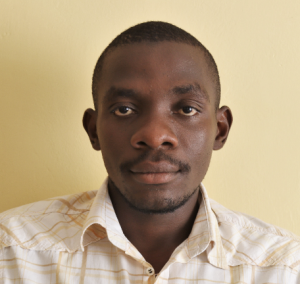Tigoi Primary School has a population of 650 students and 17 teachers. The existing rainwater harvesting tanks at the school (with 15,000 liters' total capacity) cannot sufficiently serve the school's water needs.

Furthermore, the tanks solely depend on rainfall, which complicates the problem since there is not enough during the dry season. The school must lock the tank to limit water usage, controlling students' access to clean drinking water.
When there is insufficient water at the school, children bring their own from home, but the sources they choose are not always safe.

Headteacher Faridah Malova (seen above) commented, "We are very worried about our students. They trek for long distances to fetch water from home. Some of them come from as far as 6km away. Carrying water is more of a burden to them. During the dry season, they crowd around the tank, especially in the afternoon, hoping to drink water, but due to the rationing, it's usually a little bit hard."
Carrying water from home every morning seems normal to students, but teachers acknowledge that the children arrive in class very tired, which affects their concentration levels and reduces their academic output.
Due to the water inadequacy, the hygiene and sanitation levels of the school have been significantly compromised. In the long run, this is detrimental to everyone's health.
"Water is a problem here at school. We have to carry 10 liters of water every morning. You arrive at school in the morning while tired. Sometimes I even carry my personal drinking water, but my friends end up borrowing all of it," said Celestian O.
The proposed solution of a new borehole will provide water throughout the year, guarantee students and staff access to drinking water, and meet the school's needs for cooking and cleaning. Students' health and academic performance are bound to improve.
What We Can Do:
New Well
We conducted a hydrogeological survey at this school and the results indicated the water table beneath it is an ideal candidate for a borehole well. Due to a borehole well's unique ability to tap into a safe, year-round water column, it will be poised to serve all of the water needs for this school's large population, even through the dry months.
The school will help collect the needed construction materials such as sand, rocks, and water for mixing cement. They will also provide housing and meals for the work team, in addition to providing local laborers. We will complement their materials by providing an expert team of artisans and drilling professionals, tools, hardware, and the hand-pump. Once finished, water from the well will then be used by the school's students and staff for drinking, handwashing, cooking, cleaning, and much more.
Handwashing Stations
There is currently nowhere for students to wash their hands after using the latrines or before eating lunch, let alone the water to do so.
The student health club will oversee the two new handwashing stations we will provide, and make sure they are kept clean and in working condition. The club leaders will fill the handwashing stations with water daily and make sure they are always supplied with a cleaning agent such as soap or ash.
VIP Latrines
We will construct two triple-door latrine blocks using local materials that the school will help gather. Three doors will serve the girls and three doors will serve the boys. All of these new latrines will have cement floors that are designed to be easy to use and to clean. And with a borehole right on school property, there should be enough water to keep them clean.
Training on Health, Hygiene, COVID-19, and More
We will hold a one-day intensive training session with students, teachers, and parents. This training will cover a wide range of topics including COVID-19 symptoms, transmission routes, and prevention; personal and environmental hygiene; and the operation and maintenance of the borehole, latrines, and handwashing stations. There will be a special emphasis on handwashing.
Our team of facilitators will use a variety of methods to train, including participatory hygiene and sanitation transformation, and asset-based community development. We will initiate a student health club, which will prepare students to lead other pupils into healthy habits at school and at home. We will also lead lectures, group discussions, and provide illustrative handouts to teach health topics and ways to promote good hygiene practices within the school including handwashing and water treatment. We will then conduct a series of follow-up trainings before transitioning to our regularly scheduled support visits throughout the year.
We and the school strongly believe that all of these components will work together to improve standards at this school, which will help lead to better student academic performance and will help unlock the opportunity for these students to live better, healthier lives.

 Borehole Well and Hand Pump
Borehole Well and Hand Pump
 Rehabilitation Project
Rehabilitation Project


















